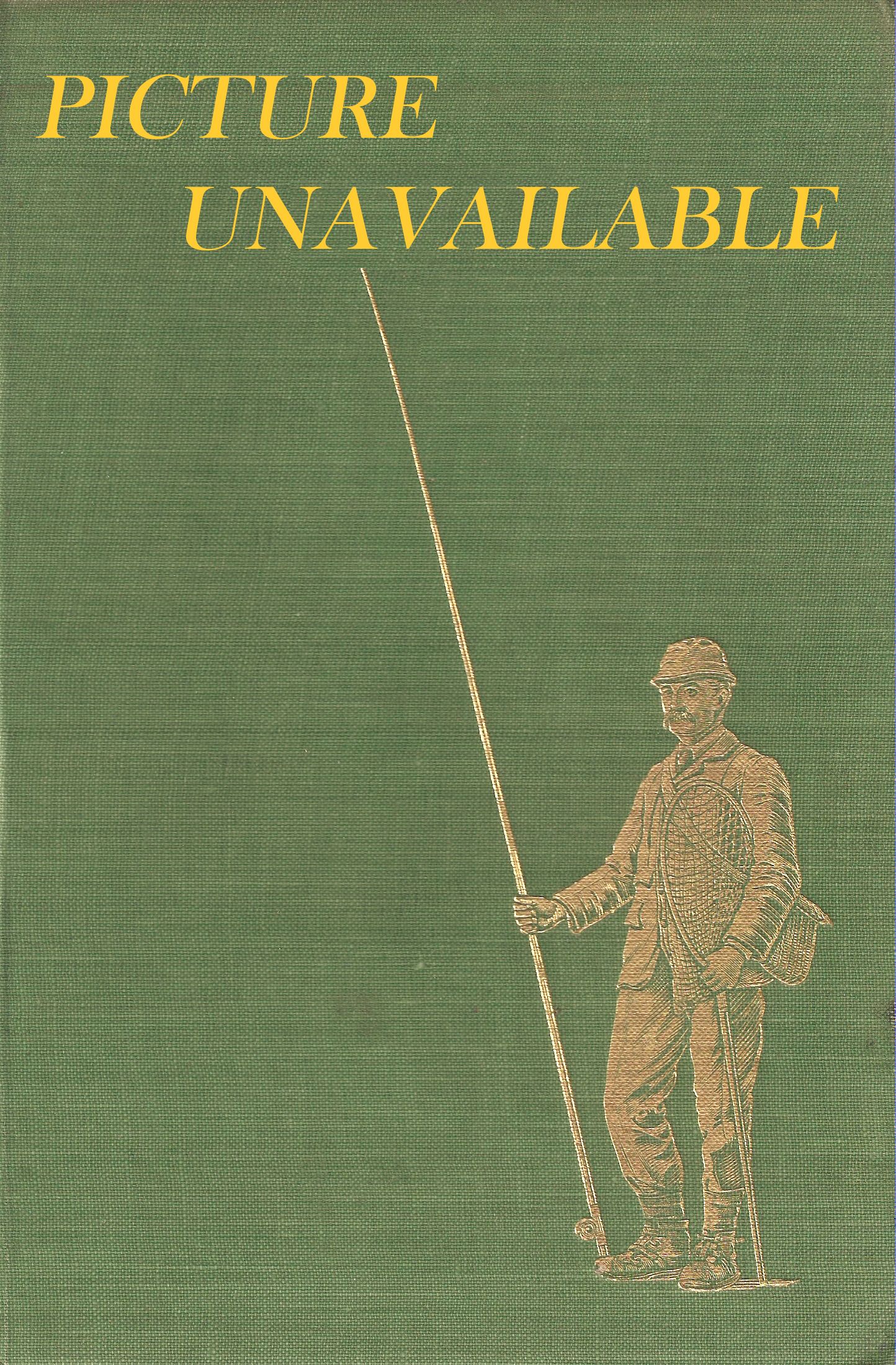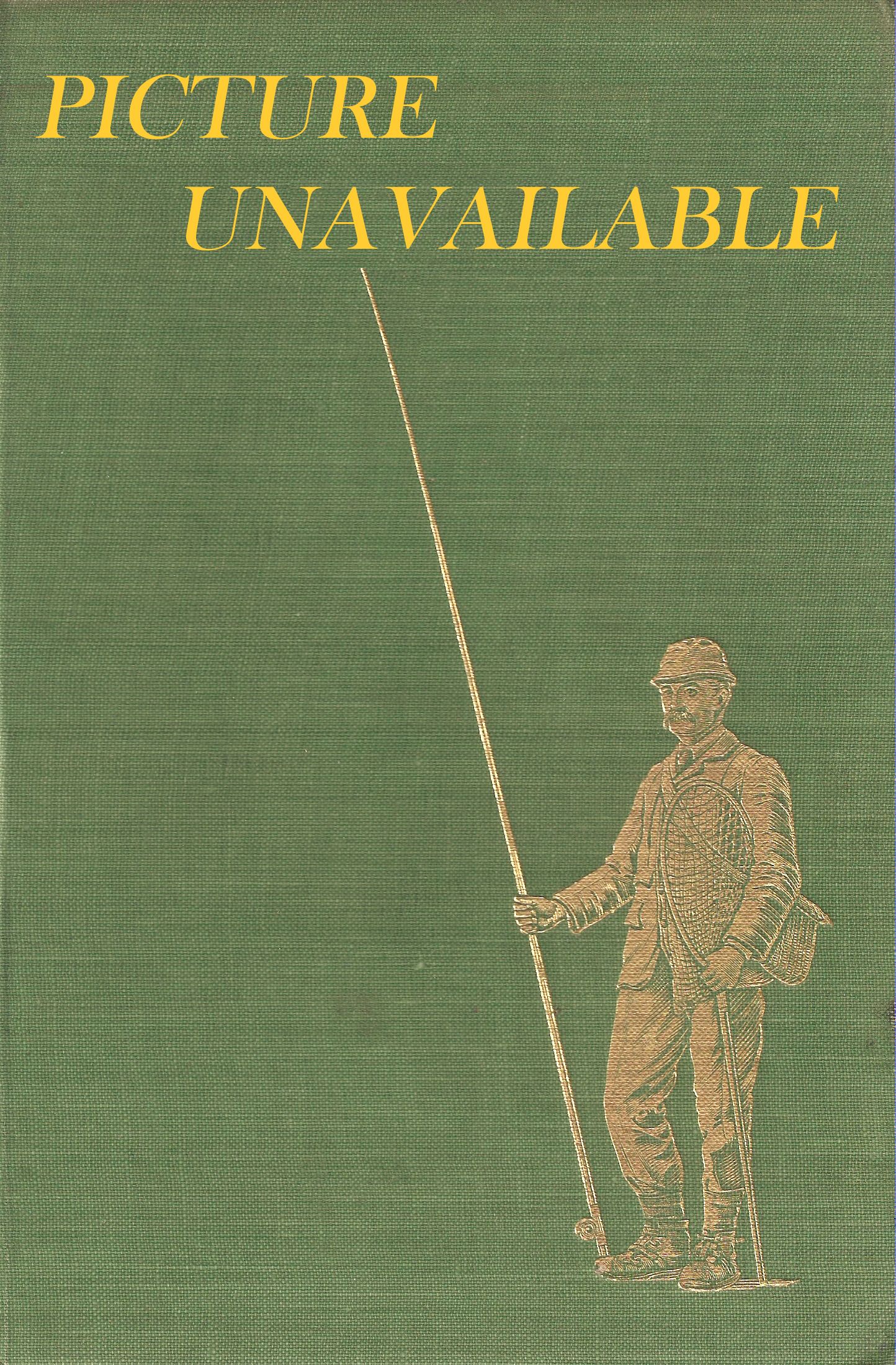THE PARDON DE MEANA AND THE FEATHER OF GALLO DE LEON. By Luis Meana Baeza.
(2007) 2011 1st English language edition. Large 4to (243 x 298mm). Pp175. Beautifully illustrated with colour photographs, including fly-tying sequences. Pictorial laminated boards. The author's website states that the English language "de luxe edition" was limited to only 500 copies. Now out-of-print.
"There are no finer imitations, natural or synthetic, for tails legs and wings than the feathers of the Spanish Coq de Leon." (Darrel Martin in Fly-Tying Methods). The Pardon de Meana is a dry fly, or a series of flies, developed by Luis Meana, mainly to represent Large Dark Olives, March Browns and stoneflies. The Pardon has a particular style of tying, developed by Luis, but the common ingredient of these flies is the hackle of the Coq de Leon. First written (in Spanish) in 2007, this English translation, limited to only 500 copies, has been eagerly awaited. Includes detailed instructions and clear step-by-step photographs showing the construction of the Pardon de Meana and other, related flies, as well as much on techniques of fishing these flies, and a section on raising Gallo de Leon poultry for the fly-tyer. Chapters include: History of fly fishing in Spain (with the Spanish wet fly); The Gallo de Leon, description genetics and conservation of the Gallo de Leon, the Curueno Valley, raising the Gallo de Leon, the Pela, quality criteria, classification of the varieties of Pardo feathers, classification of the varieties of Indio feathers; The Pardon de Meana - origin, development, characteristics, why Pardon de Meana, how to fish with the Pardon de Meana; Models and tying step-by-step - PM14 series, Original, Tandem Fly, Baetis Nigra, Iberica, Beige, Orange, Flor del Rio, Grey; PM12 series - Mayfly, Olive, Red; PM16 series - Yellow, Old Gold, Ignita, Green, Fuchsia, Beige; PM18 series - Olive, Ignita, Green, Beige; PME series - Emerger Brown, Ignita; Other Spanish flies made with the feather of Gallo de Leon; Pluma de Gallo Caddis; Mosca Ahogada (wet fly) Cascudo.
"There are no finer imitations, natural or synthetic, for tails legs and wings than the feathers of the Spanish Coq de Leon." (Darrel Martin in Fly-Tying Methods). The Pardon de Meana is a dry fly, or a series of flies, developed by Luis Meana, mainly to represent Large Dark Olives, March Browns and stoneflies. The Pardon has a particular style of tying, developed by Luis, but the common ingredient of these flies is the hackle of the Coq de Leon. First written (in Spanish) in 2007, this English translation, limited to only 500 copies, has been eagerly awaited. Includes detailed instructions and clear step-by-step photographs showing the construction of the Pardon de Meana and other, related flies, as well as much on techniques of fishing these flies, and a section on raising Gallo de Leon poultry for the fly-tyer. Chapters include: History of fly fishing in Spain (with the Spanish wet fly); The Gallo de Leon, description genetics and conservation of the Gallo de Leon, the Curueno Valley, raising the Gallo de Leon, the Pela, quality criteria, classification of the varieties of Pardo feathers, classification of the varieties of Indio feathers; The Pardon de Meana - origin, development, characteristics, why Pardon de Meana, how to fish with the Pardon de Meana; Models and tying step-by-step - PM14 series, Original, Tandem Fly, Baetis Nigra, Iberica, Beige, Orange, Flor del Rio, Grey; PM12 series - Mayfly, Olive, Red; PM16 series - Yellow, Old Gold, Ignita, Green, Fuchsia, Beige; PM18 series - Olive, Ignita, Green, Beige; PME series - Emerger Brown, Ignita; Other Spanish flies made with the feather of Gallo de Leon; Pluma de Gallo Caddis; Mosca Ahogada (wet fly) Cascudo.
£150.00
Availability:
In stock
Book Code
58855
| Author | Meana Baeza (Luis). |
|---|---|
| Book Code | 58855 |
| ISBN | 8493946516 / 9788493946517. |
| Book Description | A near-fine copy in dust-wrapper. Inscribed on the front end-paper "With affection for Paul Davis. I hope you enjoy discovering the magic of the CDL feathers. L. Meana, Pinto 21-02-2013". |
| Book Cover | Hardcover |
| Published Date | 2011 |
| Publisher | Published by the author. |
| Place | Madrid, Spain. |




